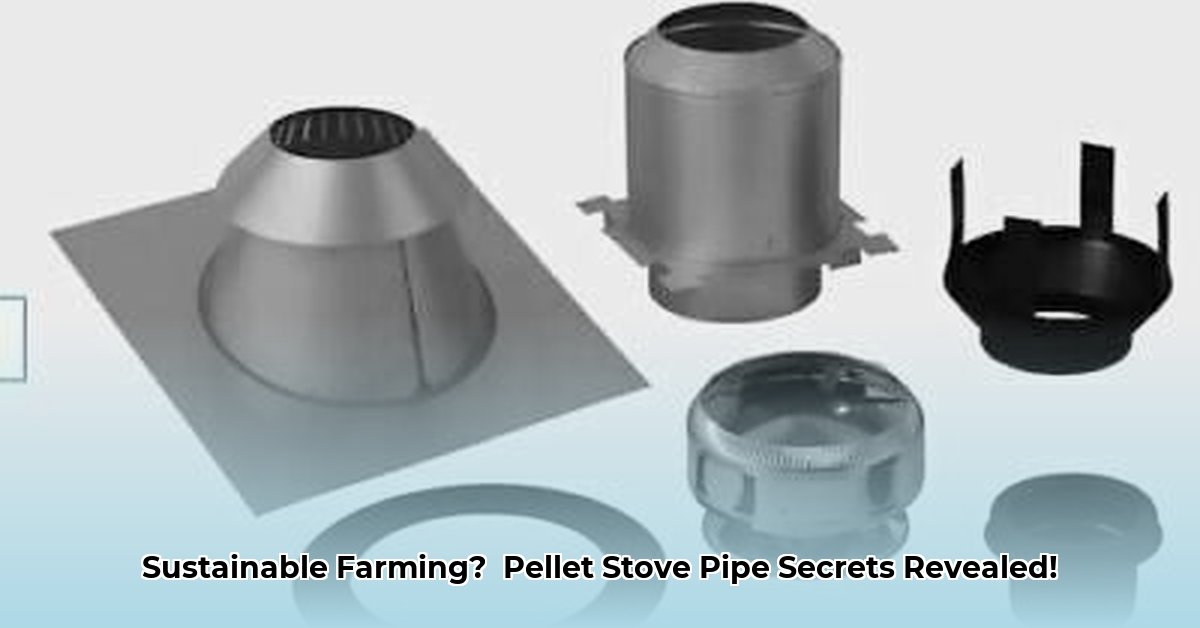
Running a sustainable farm requires careful consideration of every aspect, including heating. Traditional heating methods often rely on fossil fuels, impacting both your budget and the environment. Pellet stoves offer a smart, environmentally friendly alternative, and Tractor Supply provides the necessary components for a successful installation. For more information on choosing the right pellet stove, check out this helpful resource: Tractor Supply Pellet Stoves. This guide explains how to use pellet stoves for sustainable farming, focusing on the practical aspects of choosing, installing, and maintaining your system using Tractor Supply products.
Why Choose Pellet Stoves for Sustainable Farming?
Forget expensive propane or unreliable electricity. Pellet stoves use wood pellets – a renewable resource – to generate heat. This translates to: warmer barns for healthier animals, thriving greenhouses year-round, and significant savings on your energy bills. Burning wood pellets produces fewer greenhouse gases than traditional fuels, making it a responsible choice for the environment. Isn't reducing your farm's carbon footprint a worthwhile goal?
Choosing and Installing Your Pellet Stove System from Tractor Supply
Selecting the right pellet stove is straightforward. Consider the area you need to heat – barn, greenhouse, or farmhouse. Tractor Supply offers various models to suit different space sizes. Their knowledgeable staff can guide you to the best fit for your specific needs. Don't hesitate to ask questions!
Once you've chosen your stove, you'll need the appropriate venting system. Tractor Supply offers a complete range of pellet stove pipe components, ensuring a safe and efficient setup. The correct pipe size is crucial for both safety and efficiency.
Installing Your Pellet Stove: A Step-by-Step Guide
Correct installation is crucial for safety and efficiency. Always meticulously follow the manufacturer's instructions. If anything is unclear, or you're uncomfortable with any aspect, hire a qualified professional. Safety is non-negotiable.
- Planning: Before unpacking, plan the stove's location and the pipe's route. Consider the distance to the exterior wall and any obstacles. Confirm compliance with all local building codes and safety regulations. (Important: Consult local building codes before beginning installation).
- Pipe Assembly: Carefully assemble the pipe components (available at Tractor Supply), following the manufacturer’s instructions. Ensure all connections are secure and airtight – leaks are incredibly dangerous. (Critical: Airtight connections prevent dangerous gas leaks).
- Pipe Installation: Securely attach the pipe sections, ensuring stability. Maintain a straight pipe run whenever possible to prevent blockages. (Tip: A straight pipe run improves airflow and efficiency).
- Stove Connection: Connect the pipe to the stove's exhaust port, ensuring an airtight seal. (Warning: A loose connection can lead to dangerous gas leaks).
- Final Inspection: Thoroughly inspect the entire system before use. This is your final opportunity to address any potential issues and ensure safety. (Safety Check): Always conduct a thorough safety inspection before using your new pellet stove.
Maintaining Your Pellet Stove for Peak Performance
Regular maintenance is key to longevity and efficiency. Think of it as preventative care.
- Cleaning: Regularly clean the ash pan and the stovepipe to prevent creosote buildup, a significant fire hazard.
- Fuel Storage: Store wood pellets in a dry location to prevent moisture absorption, which negatively impacts burn quality.
- Inspections: Periodically inspect the entire system for damage or issues and rectify them promptly.
Pellet Stoves and Your Farm's Bottom Line
While there's an upfront investment in the stove and pipe, the long-term savings and environmental benefits make it worthwhile. Reduced fuel costs should offset the initial expense. Also consider any potential tax credits or rebates for energy-efficient upgrades. Research and comparison shopping are key to finding the best value.
Key Considerations: Pros and Cons
| Pros | Cons |
|---|---|
| Reduced reliance on fossil fuels | Requires storage space for wood pellets |
| Renewable fuel source | Higher initial investment cost |
| Efficient and effective heating | Regular cleaning and maintenance are crucial |
| Potentially lower operating costs | Possible creosote buildup (requires regular cleaning) |
| Increases energy independence on your farm | May need professional installation help |
Remember, safety is paramount. If you have any doubts, consult Tractor Supply experts or a qualified professional. Investing in a pellet stove is an investment in a more sustainable and efficient farm operation.